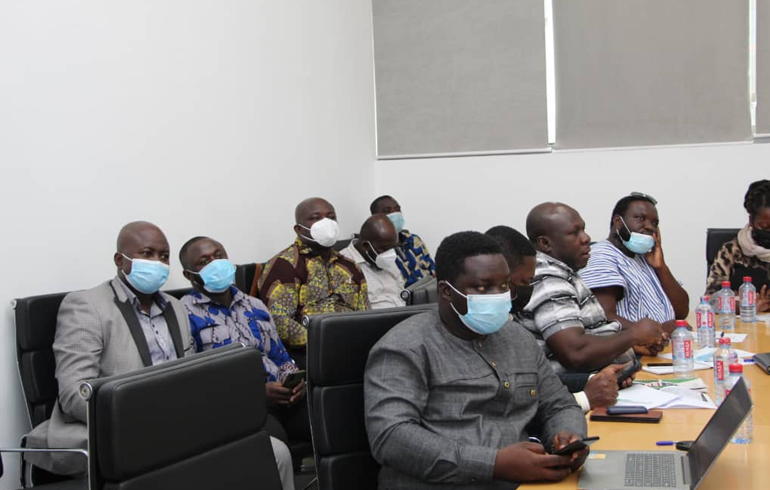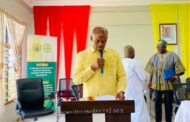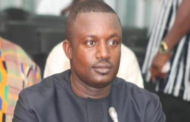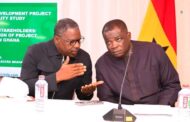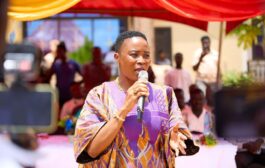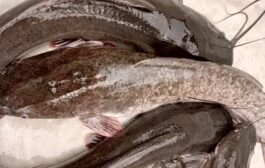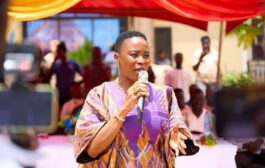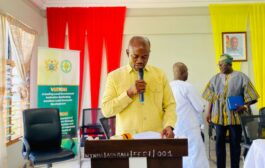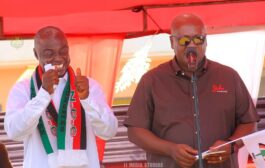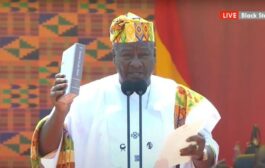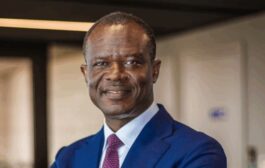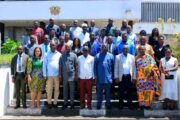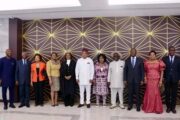The Ghana Integrated Aluminium Development Corporation (GIADEC) has affirmed its commitment to responsible and sustainable mining at an Environmental workshop it held for Twenty-Two (22) journalists from Sixteen (16) media organizations in Accra.
“Preserving and sustaining nature is paramount to us at GIADEC; we know it’s important too for all our stakeholders, Mr Michael Ansah, CEO of GIADEC told the participants”.
“That is why we consider it our responsibility to bring the media and other stakeholders on board right from the beginning and keep you informed all the way through, Mr Ansah said”.
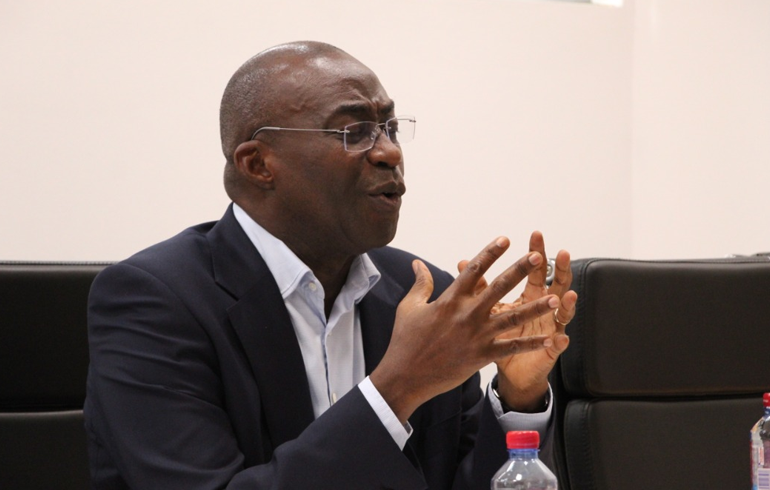
The workshop held on Wednesday, 31st March 2021 updated the journalists on GIADEC’s strategic measures aimed at preserving the environment, including original flora, fauna and topsoil within its bauxite mining concessions at Awaso, Atewa, Mpasaaso and Nyinahin.
GIADEC is a state-owned corporation established by the Ghana government in 2018 to develop and promote the Integrated Aluminium Industry in Ghana.
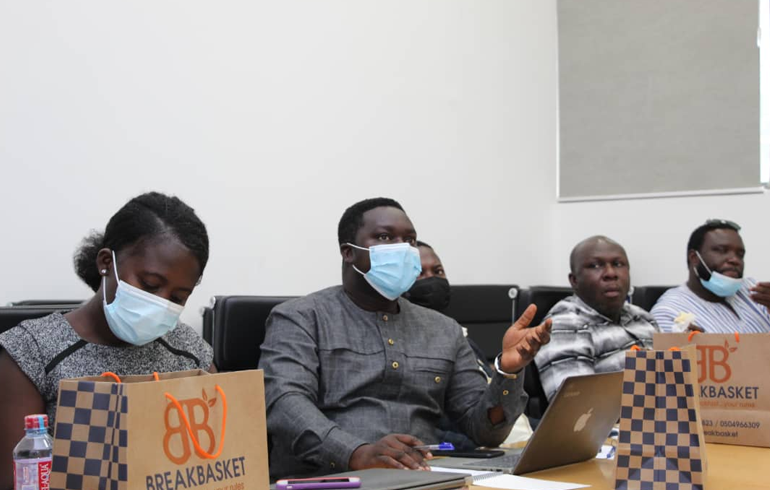
Mr. Ansah said GIADEC would be transparent and accountable to the mining communities and the people of Ghana.
“GIADEC intends to keep every detail of its exploration, exploitation and restoration activities within the public domain to ensure that everyone appreciates that we’ve adhered strictly to national regulations and best international standards,” said Mr Ansah, a globally-respected estates specialist and former Senior Vice President of Dell.
Journalists at the workshop were taken through three essential thematic areas, namely environmental protection practices, research, and protection of water bodies.
The facilitators were Mr Ransford Sekyi of the Environmental Protection Agency (EPA), Prof. Benjamin B. Campion of the Faculty of Renewable Natural Resources (KNUST), and Ms Adwoa Painstil of Water Resources Commission.
ENVIRONMENTAL PROTECTION
The Director of Mines at Environmental Protection Agency Mr Ransford Sekyi outlined the processes for acquiring permits and commended the Ghana Integrated Aluminium Development Corporation for duly following EPA’s procedures.
He explained that even though mining was yet to begin, GIADEC had consulted and involved the EPA in all of its preliminary activities toward exploration.
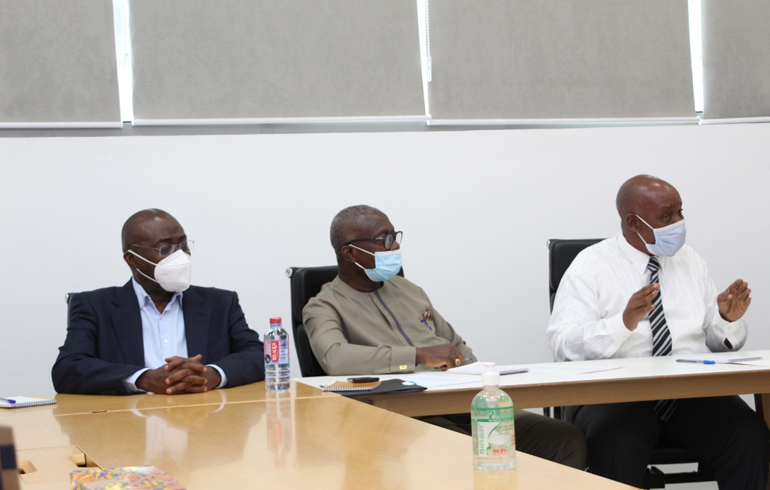
Mr Sekyi, confirmed that the EPA on behalf of GoG commissioned KNUST to conduct a baseline biodiversity study in the Atewa forest reserve and the outcome would address the concerns on the preservation of the environment.
He said mining companies went through a rigorous process of permitting before they could start exploration and mining.
Companies were required to submit a reclamation strategy with a bond paid to the EPA that will be used for reclamation should the companies fail to deliver on their environmental obligations.
FLORA AND FAUNA
Prof. Campion who is leading the research at Atewa said some of the current threats to the reserve include invasive alien species, climate change, tourism, hunting, increasing wildlife trade, and logging.
However, he acknowledged that the greatest threat to the Atewa forest was the activities of illegal small-scale mining (Galamsey) rather than legal mining companies who were bonded to restore the pre-mining environment.
“Our findings will be presented to the EPA, which will be the basis for advising Government of Ghana on policy options,” Dr Campion said.
He, therefore, urged the media to assure the public, that, whatever the circumstances, mining would be done sustainably if it went ahead.
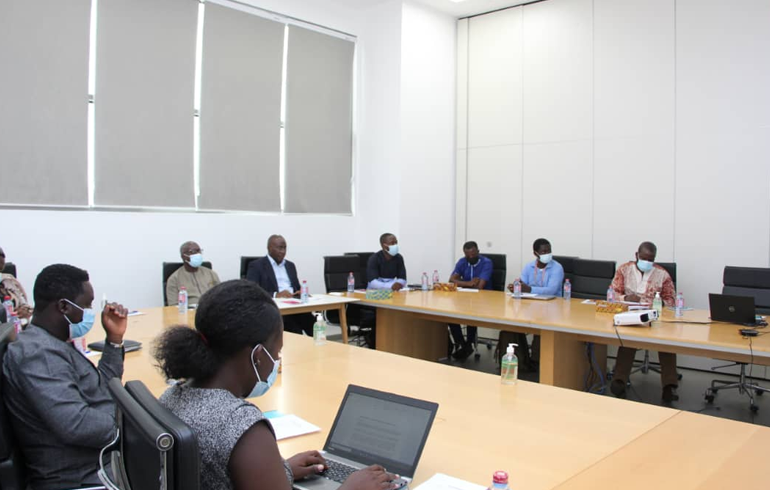
WATER BODIES
Ms Paintsil, Director – Environmental Quality at Water Resources Commission said her outfit would restrict any activity that threatens water sources and livelihoods. She took participants through the commission’s permitting processes, saying once GIADEC and its partners went through the appropriate permitting processes then the Birim, Densu and Ayensu, all rivers in the Atewa forest, were sure to be protected.
TO MINE OR NOT TO MINE
The training rounded up with a consensus by both facilitators and Editors that it is imminent for GIADEC to be supported by the media especially, the government, private sector partners and all other stakeholders to develop the Aluminium industry in Ghana as the base for the country’s economic development. Participants were particular about GIADEC being allowed to mine in Atewa. This they believed would bring sanity and predictability to the forest reserve and prevent the destructive activities of illegal miners.
Source: Mybyrtfmonline.com/GIADEC



